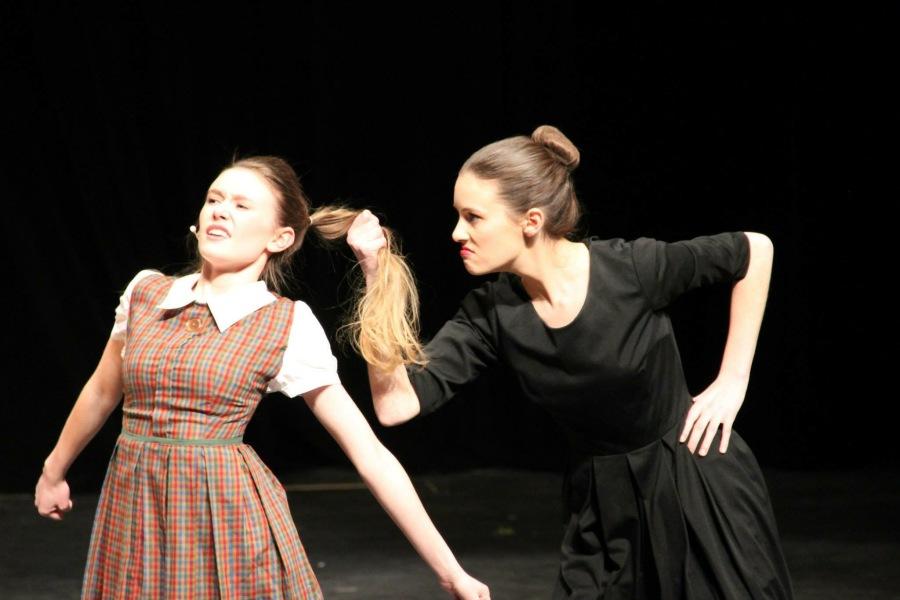My Name is Natalie, and My Sport is Theater
When meeting someone new, often the second or third unavoidably basic question is “Do you play sports?” People ask this question hoping to find some common thread with the other person; after all, it’s easy to relate to someone who knows what it’s like to spend hours each week practicing, pushing yourself physically and mentally.
There is often some small element of surprise and uncertainty, however, when people ask me the same question and find that my answer is “No, I do theater.” Often, there is a slight pause before the general reply of “Oh, cool.”
While I can’t pretend to know what’s going on in other peoples’ heads, I imagine that for people who know very little about the world of theater, it can be a difficult topic to pursue in conversation. I can say right now that it doesn’t have to be. While the world of athletics and the world of theater are vastly different in many ways, there are more commonalities between the two than one might think.
For starters, the audition process for actors is similar in the basic idea to the tryout process that athletes undergo to determine placement on teams. Athletes run drills and physical tests to show their skills and abilities in their sport. In a similar way, actors show off their musical and theatrical prowess to prove their talent. We stand on stage in front of the panel of directors and perform our hearts out to prove we’ve got what it takes to land a leading role, much like athletes push themselves to the limit to prove they’re what the coaches are looking for.
Most people don’t consider theater to be a very rigorous activity, and while it is true that actors don’t run five miles in rehearsals, being in shows can still be very physically demanding. Ever climbed up eight feet of scaffolding in three-inch heels and a dress? Or done five, ten-second onstage costume changes in one musical number? Trust me, I’ve been there, and that’s a workout in itself.
An actor’s rehearsal schedule demands just as much time out of their day as an athlete’s, and it intensifies even more the week of a show, when it seems like everything is falling apart and there’s no way the show is ever going to be ready by the time opening night rolls around. Again, while I can’t speak for athletes personally, I’m sure you’ve felt something similar the week before a big game.
Yet all of those feelings disappear when the big moment finally arrives. The moment an actor steps onstage, all doubts leave their mind as they become swept up in the euphoria of the lights, the audience and the joy that comes with becoming a different character. I imagine that it’s a similar feeling for an athlete when they step onto the court or the field, and suddenly it’s just them. They race against their own minds, as they become focused on scoring the goal, nailing the serve, crossing the finish line. Similar to actors, their reward is the cheering and applause of their supporters. In a way, sports as well as theater exist as a form of entertainment for the audiences who come out to watch them.
While similarities exist between the theater and sports, that’s not to say that there aren’t major differences between the two activities. Hopefully it will now be easy to recognize the ways in which these two separate worlds are connected. The next time you meet a theater kid, don’t be afraid to strike up a conversation. They may not be able to spike a volleyball, but they can hit a four part harmony like nobody’s business. Chances are, you’ll find something in common.



